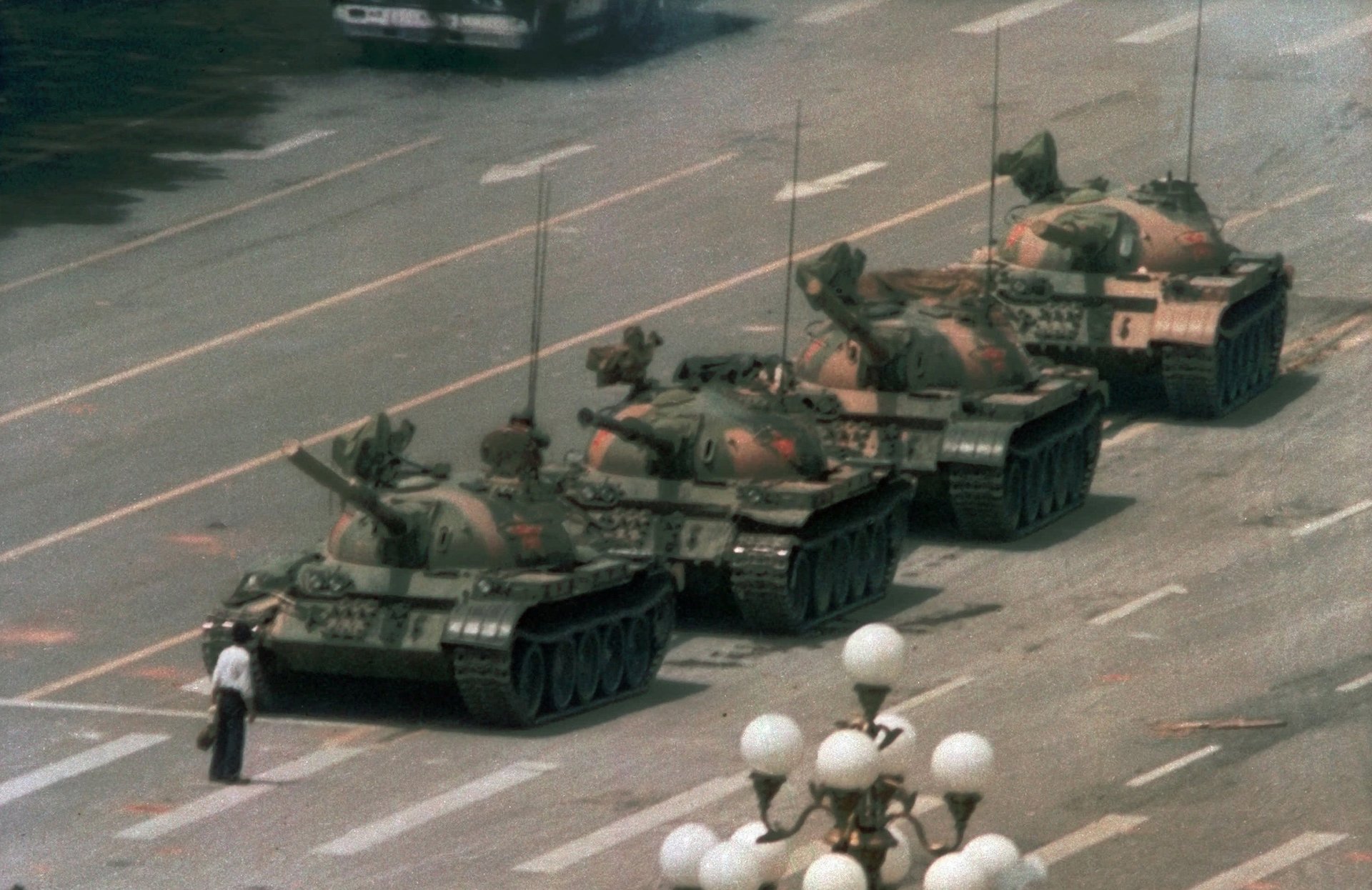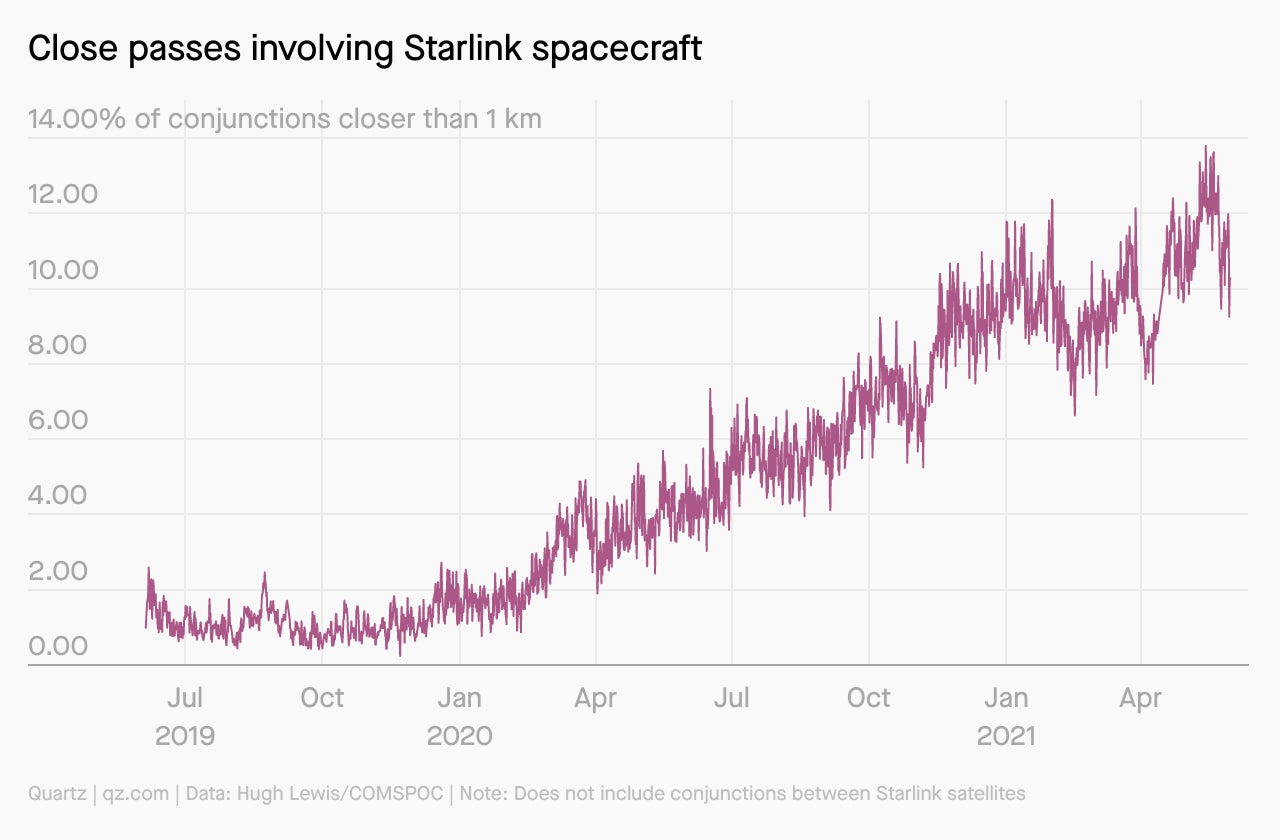G7 finance chiefs, erasing Tiananmen Square, Starlink’s near misses
Good morning, Quartz readers!


Good morning, Quartz readers!
Was this newsletter forwarded to you? Sign up here. Got someone in your orbit who has yet to collide with the Daily Brief? Forward it to them!
Here’s what you need to know
G7 finance ministers discuss a global minimum corporate tax. Meeting in London over two days, they’ll discuss how to align US and European approaches to levying more taxes on large corporations, including US tech giants.
The US finally has a vaccine-sharing plan. It will send at least 80 million doses to dozens of countries by the end of June. European opposition at the World Trade Organization, meanwhile, could sink a proposal to waive Covid-19 vaccine patents temporarily.
Peru faces the prospect of a Marxist president. In Sunday’s run-off, the rural public appears set to back Pedro Castillo, a one-time union leader who intends to shake up the country’s market economy, against Keiko Fujimori, whose father was president in the 1990s.
Uyghurs testify in London on China’s human rights abuses. A panel of UK-based lawyers and rights experts set up at the request of a Uyghur advocacy group will hold a four-day hearing. While the effort has no government backing, organizers hope to issue a determination on whether China’s actions in Xinjiang constitute genocide.
A record SPAC transaction is forming. Billionaire William Ackman is nearing a deal for a 10% stake in Universal Music Group via a special purpose acquisition company that would value the company at about $40 billion. Vivendi, Universal’s French parent, plans to spin off the label with a listing in the Netherlands.
The US banned investment in more Chinese companies with military ties. President Joe Biden expanded the blacklist created by Donald Trump to a total of 59 firms, a signal of continuity with some of his predecessor’s hardline policies on China.
Twitter rolled out a subscription service. Available first in Australia and Canada, then India, Twitter Blue will let users unsend messages and organize saved tweets.
What to watch for

For decades, Hong Kongers held a solemn candlelight vigil every June 4 to commemorate the victims of Beijing’s brutal crackdown on the 1989 Tiananmen Square student democracy protests. It was the lone place in China where mourners could come together publicly to honor the painful moment in the country’s history.
Now, the Hong Kong government has threatened prison sentences for anyone who attends the vigil, and participants risk being charged with subversion (link in Chinese) under the national security law.
It’s not just the event that authorities want to ban. It’s the memory. Just this week, the city’s sole museum dedicated to June 4 was forced to temporarily close after authorities accused it of operating without the required license. Earlier, the public broadcaster RTHK censored a show that included footage of a Tiananmen anniversary event. And this morning, police made a mainland-style preventive arrest of Chow Hang-tung, one of the organizers of the annual vigil.
Writing after his sentencing for his participation in last year’s vigil, activist Lester Shum, already detained for a separate national security charge, warned of the dangers of forgetting the date. “If our generation no longer remembers June 4…then one day, June 9, June 12…July 21…August 31”—key dates from Hong Kong’s 2019 protests—“will be treated in the same way,” Shum wrote (link in Chinese).
Charting Starlink’s close calls
The US isn’t keeping up with the proliferation of new spacecraft in low-earth orbit, and the potential consequences are serious. Megaconstellations, like those developed by SpaceX and OneWeb, will add tens of thousands of new satellites to the environment around the planet. University of Southampton professor Hugh Lewis used data from the Center for Space Standards & Innovation to visualize how often satellites are expected to pass by each other, based on their present positions.

The findings make sense, since Starlink is the world’s largest satellite constellation, but with more spacecraft coming from countries and companies around the world, expect more of these close passes. Tim Fernholz explains why this isn’t great, and what the US government isn’t doing about it.
Tim will make sure you’re up to date with the latest in the business world’s final frontier. Sign up below to receive Space Business in your inbox once a week.
QZ&A
AirAsia India—a joint venture between Tata Sons and Malaysia’s AirAsia Investment—is India’s youngest airline. Founded in 2014, it would soon be dealing with the biggest challenge the industry has ever faced: Covid-19. Quartz India’s Niharika Sharma spoke with AirAsia’s head of operations Manish Uppal and chief commercial officer Ankur Garg about what the near future could look like for the airline.
Quartz: Could you tell us about travel trends in the post-pandemic world?
Garg: There are three major drivers of traffic:
- Business traffic (people flying for work),
- Visiting friends and relatives traffic or VFR, and
- Holiday traveling, where you’re going to a leisure destination.
In this whole year, the recovery has been led by VFR… The business traffic has been the slowest to recover so far.
✦ A Quartz membership gives you an in-depth look at the industries driving the global economy. Try it free for a week.
🤷♀️Paid vaccines are a sign that the Modi government has relinquished the duties of a welfare state
(Psst.☝️ We took the last story out from behind our paywall. It’s that good.)
Surprising discoveries
Humans may have arrived in the Americas 20,000 years earlier than we thought. Animal bones dating back 30,000 years were found in a cave known to have been used by humans.
We don’t know why North Atlantic right whales are getting smaller… Some of the near-extinct species also show stunted growth.
…or why a group of elephants has traveled 300 miles across China… Maybe they’re just too stubborn to ask for directions.
…or why almost all sharks died out 19 million years ago… Scientists discovered the mass extinction by accident.
…but we do know someone paid too much money for this Hong Kong parking spot. It sold for a record $1.3 million.
Our best wishes for a productive day. Please send any news, comments, parking stories, and guided navigation tools for elephants to [email protected]. Get the most out of Quartz by downloading our iOS app and becoming a member. Today’s Daily Brief was brought to you by Sumnima Lama, Tripti Lahiri, Mary Hui, Tim Fernholz, Niharika Sharma, Mary Hui, Liz Webber, and Susan Howson.